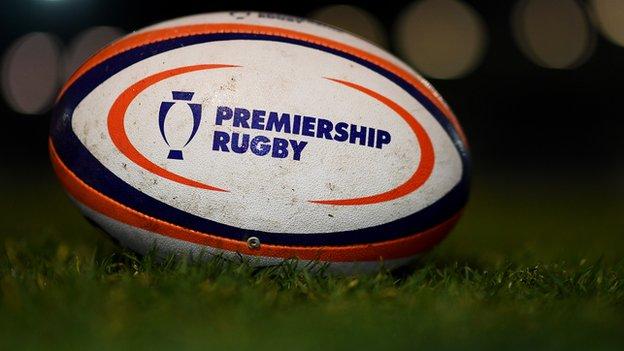Rugby Football Union says more cases of positive tests reflects society use

Last updated on .From the section Rugby Union

Four Premiership rugby players tested positive for cocaine last season, which the Rugby Football Union say reflects increasing drug use in society.
There were three more cases in 2017-2018 compared to the previous campaign.
"The positives reflect risks 18-35 year-olds are exposed to when going out socially," RFU's Dr Simon Kemp says.
"We are trying to have a policy which continues to protect the game, but recognises illicit drug use in society is becoming increasingly common."
Dr Kemp added that the players who tested positive for recreational drug use had found themselves peripheral figures at their clubs.
"These positives are not from players who are typically playing and training every week," the medical chief explained.
"These are players who [have become] somewhat dislocated from their clubs, either through injury or non-selection.
"All of these players were reviewed by an independent specialist psychiatrist, and plans to manage any ongoing problems were created."
The RFU run an illicit drugs programme independent of the World Anti-Doping Agency (WADA), and carried out 332 tests during the 2017-2018 season, 94% of which were hair samples and have a 3-5 month detection period.
"We are confident that this level of testing, which is over and above what we are required to do under the WADA code, tries to cover off both protecting the reputation and integrity of the game and addressing some of the health issues we know are associated with illicit drug use," Dr Kemp added.
Under the programme, players are guaranteed anonymity for a first offence, but are fined and required to undergo a rehabilitation programme, which the authorities insist is enough of a deterrent.
"With 300-plus tests, covering three to five months worth of use, if this was a broader problem and it hadn't been a disincentive, we would see more positives," said Premiership Rugby's Phil Winstanley.
'Anti-doping programme comprehensive'
The two anti-doping violations - Ashley Johnson of Wasps and Brandon Staples of Yorkshire Carnegie - were announced at the time of their failed test.
Johnson received a back-dated six month suspension for taking a banned diuretic, while Staples was banned for four years last April after testing positive for steroids.
Last year it emerged a Premiership player could go a whole season without being tested once, and while this remains the case, there has been an 18% increase in the number of samples taken due to an increase in funding.
"The programme was comprehensive and has now been further improved through UKAD's increased testing investment, so it is still one of the most comprehensive programmes we run," said Hamish Coffey of UK Anti-Doping (UKAD).
"But testing is not just about numbers, it is about the quality of those tests."
"It is about striking a balance that not only deters and detects, but is unpredictable," added the RFU's Anti-Doping and Illicit Drugs Programme Manager, Stephen Watkins.
"It is about running something players don't necessarily expect. But we are always looking for ways to improve our programme."





















